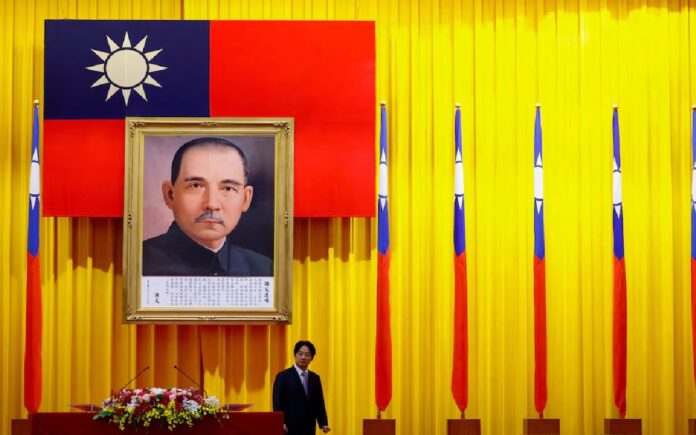Beijing/Taipei: Several foreign companies are evaluating the safety of their Taiwanese employees in China following Beijing’s recent announcement that it could impose the death penalty on staunch Taiwan independence advocates. According to sources familiar with the matter, this development has prompted a rush among Taiwanese expatriates and multinational corporations operating in China to assess legal risks and potential implications.
James Zimmerman, a partner at Perkins Coie law firm in Beijing, disclosed that multiple companies have sought legal counsel to evaluate risks posed to their personnel. Concerns linger over ambiguities in the new guidelines, such as the interpretation of benign social media activity or political preferences in Taiwan elections as pro-independence actions.
As of 2022, approximately 177,000 Taiwanese citizens were employed in various sectors across China, leveraging their language skills and cultural familiarity. Taiwanese nationals are pivotal in both multinational corporations and Taiwanese-owned enterprises, which have collectively invested over $200 billion in China since 1991, bolstering the country’s economic growth.
Executives from foreign corporations have reportedly convened meetings with employees to address safety concerns, reflecting heightened apprehensions in the wake of China’s latest regulatory measures. Some Taiwanese staff members have already opted to leave the country as a precautionary measure.
Also Read | Pakistan PM Shehbaz Sharif Addresses Terrorism at SCO, Calls for Afghan Engagement
China’s Perspective and Reactions
China considers Taiwan a part of its territory and has denounced President Lai Ching-te’s rejection of Beijing’s sovereignty claims. The recent guidelines criminalize activities supporting Taiwan’s international recognition or advocating separatism, with severe penalties including the death penalty for extreme cases.
Responding to inquiries, China’s foreign ministry emphasized the use of criminal measures to safeguard national interests, assuring that the regulations target a minority of radical separatists and not the broader Taiwanese population. However, Taiwan’s Mainland Affairs Council has urged caution among Taiwanese nationals in China, highlighting increasing risks.
Also Read | Ethiopia Seeks $10.5 Billion Lifeline Amid Debt Crisis, Says PM Abiy Ahmed
The uncertainty surrounding these developments adds to existing challenges for businesses in China, compounded by previous laws on espionage and national security. Foreign companies now face critical decisions regarding the deployment and safety of Taiwanese talent, potentially impacting future operations and employment policies.



